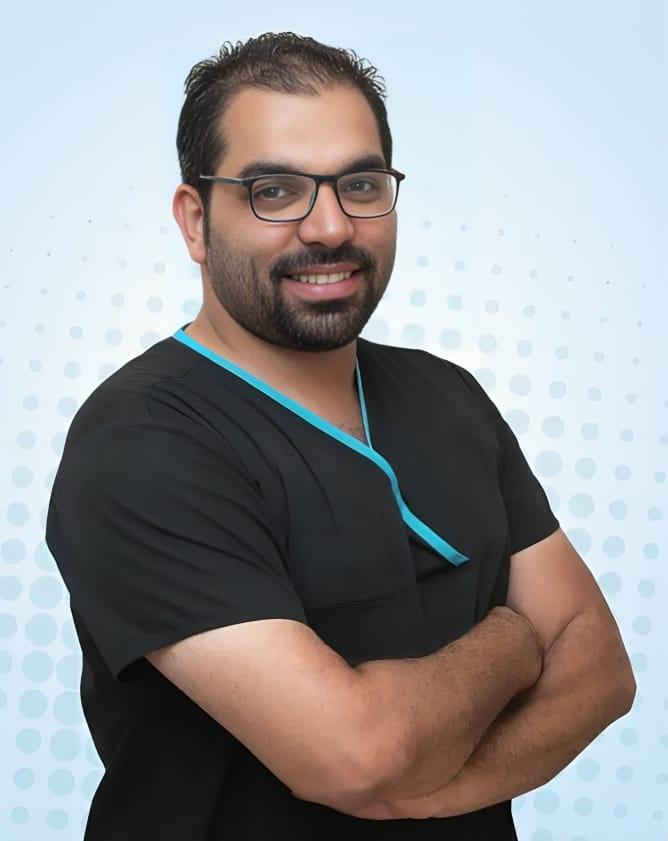Dr. Mohamed Ali Abu Samra - Consultant in Surgery, Oncology, and Laparoscopic Surgery
Academic Qualifications:
Egyptian Fellowship in Oncology Surgery: One of Dr. Mohamed Ali Abu Samra's advanced academic qualifications, ensuring his expertise in oncology treatment.
Master's in Surgery, Menoufia University: An academic degree confirming his broad expertise in general surgery.
Diploma in Surgery, Al-Azhar University: This qualification allows him to provide the highest levels of medical care.
Bachelor of Medicine and Surgery, Alexandria University: The foundational scientific degree from which he started his medical career.
Subspecialties: Dr. Mohamed Ali Abu Samra offers specialized surgical services in a variety of fields, including:
Abdominal Surgery: Treating conditions related to abdominal organs such as the colon, stomach, and liver.
Endocrine Surgery: Dealing with surgical issues related to the endocrine glands.
Gastrointestinal Surgery and Laparoscopy for Adults: Performing precise operations on the gastrointestinal system using laparoscopy to minimize surgical intervention.
Gynecologic Oncology Surgery: Treating tumors affecting the female reproductive organs.
Breast Cancer Surgery: Diagnosing and treating breast cancer, including excision surgery.
Colon Cancer Surgery: Treating tumors affecting the colon with precise surgical techniques.
Liver Cancer Surgery: Performing surgeries to remove tumors from the liver.
Stomach Cancer Surgery: Performing surgeries to remove stomach tumors.
General Surgery for Adults: Treating general surgical conditions affecting adults, such as accident-related injuries.
Trauma Surgery: Treating injuries resulting from accidents using advanced surgical techniques.
Pediatric Oncology Surgery: Performing surgeries on children who suffer from tumors.
Academic and Professional Experience:
2007: Dr. Mohamed Ali Abu Samra began his career as a surgical doctor from the Faculty of Medicine, Alexandria University, where he received basic academic and surgical training.
2020 - Present: He has been working as a Consultant Surgeon in Alexandria, providing specialized consultations and overseeing surgeries in his various fields.
Contact Information:
Phone Number: 0155 335 6568
Address: Kafr El-Sheikh Center, Mazlagan Al-Enshea and Taamir, Alexandria
Why Choose Dr. Mohamed Ali Abu Samra? Dr. Mohamed Ali Abu Samra has a good reputation in the field of surgery, oncology, and laparoscopy. With years of experience and advanced surgical skills, patients can rely on his high level of healthcare services. Dr. Abu Samra enhances his expertise by providing the latest therapeutic and surgical techniques, contributing to effective treatments with minimal risks and surgical interventions.
How to Contact Dr. Mohamed Ali Abu Samra? For consultations or to learn more about the services provided, you can call the number above or visit the clinic at the Kafr El-Sheikh Center in Alexandria.

